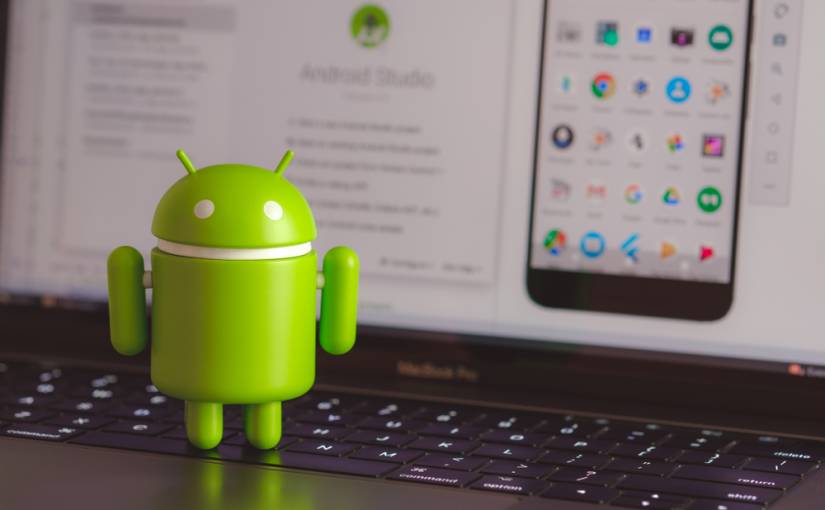We spend our lives on our smartphones for purposes like communicating with our near and dear ones, researching different items, binge-watching, etc. This has led to the use of smartphones growing to a huge extent. Research suggests that the number of smartphone users globally is 6.65 billion.
So what is the reason that makes us rely on these devices and apps, so to speak? The answer to this is the provision of sensory experiences. This is why businesses channel their efforts on the task of utilizing the best techniques during the development of these solutions so that the engagement level remains at the top.
While talking about the aspect, there are two platforms where developers usually build an app. One is Android, while the other is iOS.
In the article, I will discuss the element of Android app development, explaining the significance of a programming language in this, followed by giving you a list of the best languages to build native Android applications.
About the Android Platform
Google released Android in 2008. A mobile operating system, Samsung, and Sony have leveraged their advantages to the maximum. This was due to the support the platform rendered to devices like smartphones and tablets. The work from the Android Platform has led to the Operating System having over 2.8 billion active users.
This number suggests why developers are channeling their efforts toward developing a native Android app.
Understanding the Concept of Native Android App Development
Native Android app development includes the aspect of creating an app that is tailored in sync with the features present in the Android platform or devices like smartphones or tablets. This ensures that users receive a seamless experience in terms of visuals and performance.
To ascertain that these aspects become easily achievable, it is a must to use the best programming languages.
7 Best Programming Languages Perfect for Android Apps Development
There are many languages that developers recommend when they embark on the journey of creating an Android app. You can discover below some of the most utilized languages for Android development.
1. Java
Java is a computer coding language whose release was done by Sun Microsystems in the 1990s. Subsequently, it got acquired by Oracle and has since then built its name as a multi-purpose coding language that helps developers to develop Android apps for services like games alongside building tools.
It also has a diverse range of features that makes it the developers’ favorite.
- Enables developers with the concept of OOPS, also known as Object Oriented Programming to allow them to create reusable codes.
- It gives access to open-source libraries to allow the app development cost to go down and the procedure to get accelerated.
- It is easy to learn due to the presence of English punctuation, which most developers are familiar with, followed by containing angle brackets in the generics to make coding easy to read.
2. Kotlin
60% of developers recommend Kotlin next when they build an Android app. This is due to the support it provides them to boost their productivity, followed by ensuring that the code is safe from incidents like crashes. Additionally, it is packed with features like structured concurrency to make network calls and database updates easy to perform. This is followed by including nullability within the type system to ensure NullPointer Exceptions get avoided in the best possible manner.
Here are some other constituents present in the programming language that make it perfect for this task.
- Due to interoperability support with Java as a result of supporting Java libraries and tools, it helps developers in compiling an Android project in the two languages with swiftness.
- Helps the development experts in writing an equivalent of the Java code simplistically, requiring lesser code.
- It makes it easy to determine the predict the constituents of the resulting list through the provision of collection filtering.
3. Dart
Developed by Google in 2011, Dart has earned its name as an object-oriented client-optimized programming language that makes web and mobile app development seamless across different platforms. Particularly when it comes to building a native Android app, the language streamlines this task greatly due to its aid to developers in converting the Dart code into a native code. The language especially renders aid to developers in UI development by enabling them with features like hot-reload so that changes are easy to view as they occur.
Compiled with the below-mentioned elements make, Dart perfect for developing an app for the Android platform.
- Possessing a syntax similar to Java, C#, etc., it is easy to learn.
- Code compilation happens at an accelerated pace due to the support it renders to the two kinds of compilation processes like AOT (Ahead of Time) and JIT (Just-in-Time).
- Has a large community of developers. Therefore, it ensures any problems that the development experts face during coding are easily resolved.
4. C#
Microsoft developed C# as an object-oriented programming language that simplifies app management and accelerates the development pace. It is particularly known for supporting in the task of developing mobile apps, desktop apps, cloud-based services, enterprise software, and games.
Coming to the task of developing Android apps, as a result of containing an android SDK (software development kit), C# helps in streamlining coding-related tasks to a great extent. This is followed by possessing the features listed below.
- Shareable code across multiple platforms.
- Garbage collection tool to prevent chances of memory leaks.
- Android SDK to enable developers to code comfortably using C3.
5. Python
Known as an interpreted, object-oriented, high-level language containing dynamic semantics, Python accelerates the Android app development time. Alongside this, it also contains third-party tools to allow the conversion of Python apps into Android packages to take place conveniently. However, if we have to cite a con related to the language when used for developing Android apps, it is mostly the prospect of consuming excessive memory.
Nevertheless, containing the Kivy library ensures that developers can create these apps at a reasonably faster pace. Alternatively, it comes pre-loaded with the features such as:
- Code that is easy to read, thereby making app design and software update an easy process.
- Comprehensive libraries that enable developers to include functions within the app during the later stages of development mitigate the requirement to add code separately.
- Test-driven development to accelerate the app development pace, streamline the task of prototype creation, and, most importantly, make it easy for developers to assess the design of an app, ensuring its user-friendly nature.
6. Lua
Though not too popular, Lua is nevertheless a good alternative in terms of programming languages for developing a native Android app. Through the partnership with the Corona SDK, it enables development experts with a range of features to streamline this task (native Android app development).
Alternatively, Lua contains the following features listed below by us that have allowed it also to become a favorite among developers.
- Simple and well-documented API to ensure robust integration with code written in other languages.
- Meta-mechanisms to make class implementation and inheritance streamlined.
- Software is free and open-source, thereby ensuring developers need not spend anything to purchase it. A simple download is all it takes for developers to start using it.
7. JavaScript
JavaScript is popular among developers for its versatility. Due to the support it provides them in creating rich user interfaces at accelerated paces; JavaScript has become a language developers suggest for Android app development.
Especially due to containing the frameworks like React Native and Flutter, for instance, developers get the necessary features for building an Android app with utmost ease. I have listed down the properties it contains that particularly allow it to maintain its prominence among development experts.
- A single code base makes it easy for developers to create multiple platforms. This ensures that it becomes convenient to make the services reach the maximum target audience.
- Universal front-end to rewrite server-side code for back-end tasks and identify the performance of the server side.
- Open-source to ensure a rich mobile UI is easy to create from decorative components.
Conquer Android Like a Champion
Want to build an app that helps you conquer the world of Android like a champion? With there being many apps already in the market, there is no specific language you need to reserve when you perform Android app development. You need to be adept in all of them and, based on business objectives and client preferences, make the appropriate choice. As they say, the right decision taken at the right time is key to success. Know these languages and expand your skill sets to achieve growth like never before.
Featured Image Credit: Provided by the Author; Pexels; Thank you!



